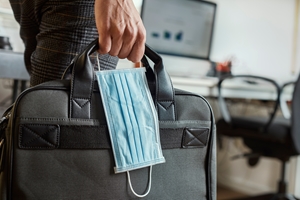
The COVID-19 pandemic may feel over for some Australians, but various restrictions in many states, including Victoria, remain in effect. The impact that lockdowns are still having on businesses may vary by state, but across the country overall, the financial fallout from the peaks of the pandemic remain. Many businesses have found innovative ways to adapt, maintain productivity and bring in income. In addition, the Australian government continues to offer financial support to keep businesses afloat during these difficult times. Most of these programs are set to continue through the New Year and well into 2021.
New lockdowns
While the number of cases of COVID-19 in Australia have fallen from its summer peak, a variety of measures remain in place to keep the public safe. In some states, new lockdowns are even beginning, although hopefully only for short periods. In South Australia, for example, authorities called for a six-day lockdown starting Nov. 17, 2020, after a cluster of cases was found to have stemmed from a pizza restaurant in Woodville, according to ABC News. The state government hopes to use those days as "circuit breaker" to stop the virus from spreading, while they do contact tracing and implement more selective quarantine for some individuals. At the time of the decision, the number of new cases in the state stood at 23.
While the new lockdown measures in South Australia will hopefully be short-lived, they will have an outsized impact on businesses in the state. Currently, all cafes, pubs, takeaway food outlets, construction companies, gyms, wedding venues and funeral parlours are closed. The restaurant industry in particular stands to be hard-hit. One of the epicentres of the new outbreak is a restaurant, and authorities are currently concerned that food delivery workers who visited multiple restaurants in a day could have spread the virus.
At a press conference, Chief Public Health Officer Professor Nicola Spurrier noted that the restaurant in question appeared on several food delivery apps and was concerned that restaurant workers across the greater Adelaide area could have come into contact.
"If you have people and friends and family living in Woodville, get a hold of them now and ask them have they been to that pizza bar [that had COVID-19 cases]… They must go directly to the testing location, wear a mask and alert the staff that they have visited the pizza bar," Spurrier said.
Making adjustments
South Australia isn't the only place where businesses have been forced to make adjustments as a result of COVID-19 safety measures. Here in Victoria, limits on many parts of daily life remain in effect, including guidelines on the number of people allowed inside restaurants or as a part of public and private gatherings. The most strict phases of lockdown, however, occurred in the summer, when COVID-19 cases reached a peak of 687 newly infected people in a single day, according to the Victoria Department of Health and Human Services.
During that time, many businesses were temporarily closed, while others were forced to find creative solutions to continue to get things done. For businesses that wanted to utilise their office space, that meant limiting the number of people allowed in the office at one time, in some cases allowing only a few hundred at a time into buildings with a capacity of thousands, according to the Financial Review. Teams working from home at some businesses got to enjoy tedium beating activities like virtual yoga to keep morale up. Other customer-facing businesses changed their policies to encourage public safety, including mask requirements for customers (and in some cases, forcing those not wearing masks to leave the premises). By taking public safety seriously, businesses not only helped speed up the process of returning to normal, but also increased customer confidence.
Government assistance
While businesses have used their own ingenuity to stave off many of the pitfalls of lockdown, in some cases government intervention is still necessary to keep business running. Luckily, the Australian government has employed several programs to help both companies and employees during these challenging times. These initiatives include the JobKeeper program, a financial distress safety net and investment support.
The JobKeeper scheme is designed to ensure employers are able to continue paying their employees wages even if they lose profits during the pandemic. It involves a payment from the government to businesses that qualify on a fortnightly basis. The program is set to continue until at least 28 March 2021. The financial distress safety net and investment support schemes, meanwhile, each lean on a combination of rule changes and support programs to help save businesses money and encourage growth.
Need help managing your assets to keep your business running? The team at WMC Accounting is there for you. Contact us today and together we'll make it through this pandemic.



